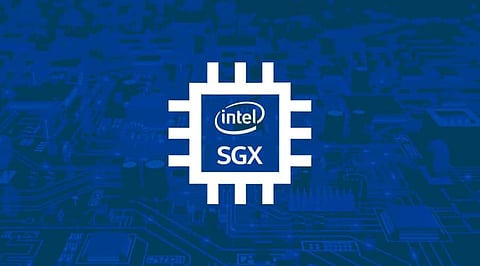

The present retail banks are hoping to smooth out their Know Your Customer (KYC) measures not exclusively to acquire efficiencies but also to work on administrative consistency. Perhaps the biggest challenge banks and building social orders face is the absence of standardization across the business. Various suppliers or divisions request conflicting documentation and data from account holders and candidates. This fracture prompts customer disappointment and expanded expense of client maintenance.
Regularly, KYC is performed with the help of credit offices that dealer clients' personally recognizable data between monetary associations to restrict the security, classification, reputational, and financial dangers. This methodology is exorbitant and ineffectual, adding a layer of organization and an over-dependence on manual cycles, making it unwieldy and tedious.
Accordingly, some financial foundations could battle to follow constantly developing guidelines in the KYC field like Anti Money Laundering and Counter-Terrorism Financing enactments. Not exclusively do new customers should be screened but also should be investigated on an intermittent premise. Cross country buildingsociety is attempting to accomplish constant, feasible consistency in the most financially savvy and speedy way.
As an information-driven financial organization with an emphasis on machine learning, Nationwide is continually seeking new drives to work with innovations. Cross country perceives the capability of bits of knowledge in touchy and confined information and has dispatched numerous workstreams to investigate advances in this field, one of which is confidential computing.
Digitizing KYC through further developed information sharing could likewise wipe out the requirement for clients to visit an actual branch. Furthermore, by building a framework that shares private client information (with individuals' consent) between monetary establishments straightforwardly, Nationwide had the option to exhibit sped-up KYC watches that could convey superior assistance to clients and gain efficiencies and cost reserve funds on their present inside measures. There would likewise be the possibility to bring down the expense of consistency checks by decreasing dependence on outsider credit offices.
Nationwide achieved this through confidential computing procedures that help AI strategies and calculation on outsider delicate datasets. This answers security and classified difficulties, guaranteeing the trustworthiness of the calculations utilizing validation methods. This conceivably makes the way for better approaches for performing beginning and progressing KYC checks.
As Nationwide set out on a proof of idea to investigate AI on scrambled datasets, introductory endeavors focused on building a common data set utilizing homomorphic encryption. The proof-of-idea scrambled information base functioned true to form. In any case, the presentation of the questions when working with creation data and genuine client ventures turned into a worry.
Nationwide pulled together the proof of concept to the potential offered by confidential computing fueled by Intel® Software Guard Extensions (Intel® SGX) innovation accessible in the Intel® Xeon® E group of processors. Intel SGX offers equipment-based memory encryption that secludes explicit application code and information in memory. Intel SGX permits client-level code to apportion private areas of memory, called territories, which are intended to be shielded from measures running at higher advantage levels.
A proof of idea based on Intel SGX was fostered that permitted encoded datasets to be decoded securely within an area. This elective innovation approach offered better versatility than the homomorphic encryption approach. Albeit the Intel Xeon E group of processors has a somewhat little territory size requiring the application to trade all through the area, Intel SGX was speedy and responsive, while information was completely scrambled to keep up with the privacy of the "shared" datasets. During testing, it was shown that accomplices had the option to examine the different capacities inside the SGX territory and affirm access was appropriately ensured—however, that the crude information itself remained encoded and blocked off to different accomplices sharing data through the stage.
The KYC proof of concept has filled in as a launchpad for confidential computing fueled by Intel SGX inside Nationwide. It has assisted with explaining the capability of secure areas, and how they can be utilized to make safer information offering freedoms to outsiders. There is likewise an unmistakable case for utilizing Intel SGX-ensured information sharing to help identify and decrease extortion like anti-money laundering for instance. Also, information partook in the confidential computing territory might be utilized to construct more precise profiles for every client, permitting Nationwide to tailor offers and advancements or to utilize further, more exact bits of knowledge to foster new items and administrations.
During the task, the software engineering proof of concepts group constructed an assortment of code libraries that use SGX. These are currently being made accessible to other in-house advancement groups to be coordinated into different undertakings rapidly and effectively, at whatever point they are required giving the possibility to fresher worth added administrations for Nationwide.
SGX innovation proceeds to develop and adjust to the changing requirements of the industry. With the arrival of the new third-generation group of Intel® Xeon® processors, there are considerably more expected freedoms.
Join our WhatsApp Channel to get the latest news, exclusives and videos on WhatsApp
_____________
Disclaimer: Analytics Insight does not provide financial advice or guidance. Also note that the cryptocurrencies mentioned/listed on the website could potentially be scams, i.e. designed to induce you to invest financial resources that may be lost forever and not be recoverable once investments are made. You are responsible for conducting your own research (DYOR) before making any investments. Read more here.
